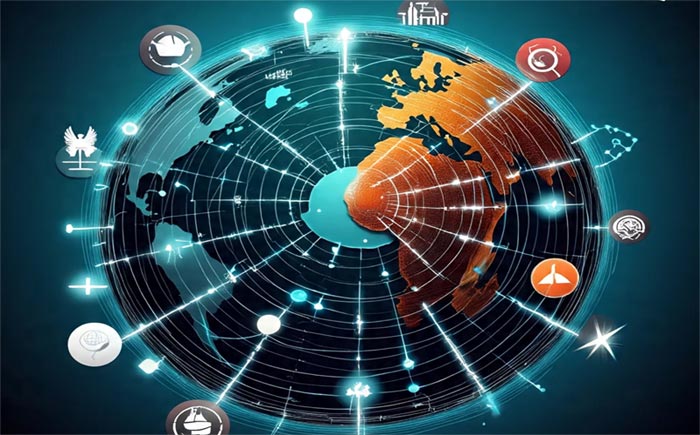
In a bold move, Sahel countries in Africa have decided to lock their doors to foreign powers that have been pillaging their mineral resources for centuries. This courageous step is a beacon of hope for the region, signaling a new era of self-determination and resource control. But who are these foreign powers, and how have they managed to impoverish the people of the Sahel while amassing fortunes?
1. France: The former colonial power has a long history of exploiting West African resources, particularly in the Sahel region. French companies like Orano (formerly Areva) and Total have been accused of plundering uranium, oil, and gas reserves, often with little regard for local communities.
2. China: China's growing presence in Africa has been marked by large-scale resource extraction, often under opaque agreements that favor Chinese interests over local needs. Chinese companies like China National Petroleum Corporation (CNPC) and China National Offshore Oil Corporation (CNOOC) have significant operations in the Sahel.
3. United States: US companies like ExxonMobil, Chevron, and Occidental Petroleum have substantial interests in West Africa's oil and gas sector. While they may bring some economic benefits, their activities often prioritize corporate profits over local development.
4. Russia: Russian companies like Gazprom and Rosneft have been expanding their presence in Africa, often through partnerships with local governments. Their interests may align with those of the host countries, but concerns about Russian influence and motives remain.
5. International Monetary Fund (IMF) and World Bank: These international institutions have been criticized for promoting economic policies that favor foreign investors over local populations. Their structural adjustment programs have often led to increased poverty and inequality in African countries.
1. French President Emmanuel Macron: Critics argue that Macron's administration continues France's neo-colonial policies in Africa, prioritizing French interests over local needs.
2. Chinese President Xi Jinping: Xi's Belt and Road Initiative (BRI) has been criticized for promoting Chinese interests at the expense of local communities, often through debt-trap diplomacy.
3. Global corporate executives: CEOs of companies like Total, ExxonMobil, and CNPC have been accused of prioritizing shareholder value over local development and environmental concerns.
The consequences of foreign exploitation are stark:
1. Poverty and inequality: Despite vast natural resources, many Nigerians live in poverty, with limited access to basic services like healthcare and education.
2. Corruption: Foreign powers often finance corruption in Nigeria, bribing officials to secure lucrative contracts and undermine local development.
3. Environmental degradation: The extraction of natural resources has led to environmental disasters, displacing communities and destroying livelihoods.
The decision by Sahel countries to lock their doors to foreign exploitation marks a significant shift in the region's history. By taking control of their resources, these countries can:
1. Prioritize local development: Resource revenues can be used to fund development projects, improve infrastructure, and provide basic services to citizens.
2. Promote transparency and accountability: Governments can ensure that resource extraction benefits local populations, rather than lining the pockets of foreign corporations and corrupt officials.
3. Foster economic growth: By controlling their resources, Sahel countries can diversify their economies, reduce dependence on foreign aid, and promote sustainable growth.
The people of the Sahel have suffered for too long under foreign exploitation. As the region embarks on this new path, it's time for foreign powers to respect African sovereignty and prioritize local development. The era of resource extraction without accountability is coming to an end. The future belongs to the people of the Sahel.
Lagos, Nigeria.
+234 913 161 4181
+234 802 586 9823
+234 803 961 8550
info@pepperroom.com.ng
© 2025 | 🌶️Pepper-Room - Everything Loud, Wild, and Worth Talking About. | All Rights Reserved.
Pepper-Room is not responsible for the content of external sites.